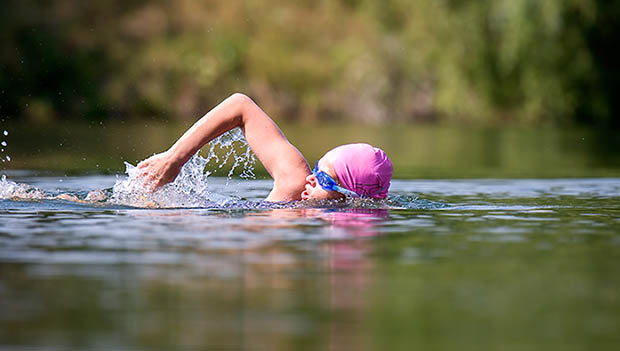
One of the biggest challenges that I hear from my athletes is always needing more time in the day, followed closely by questions about how to “balance” life with work, family and triathlon training. These are common pain points that triathletes of all levels deal with—so what are the answers?
We all have the same 1,440 minutes a day, so when you see other athletes, who may be business owners, entrepreneurs, doctors, lawyers, parents, etc., who are still crushing their workouts, sometimes you may think, “How do they manage that? Is there a secret sauce?”
As a coach, and one who has coached these types of athletes, I don’t think there is a “secret sauce,” but what I can tell you is that a lot of them have the same determination and the belief that they are chasing a better version of themselves. That is their North Star, and it keeps them going even when their schedules get very demanding or out of their control (and this happens to everyone).
When I put together workouts for these athletes, it is truly like a big Sudoku puzzle around their busy schedules. But I know that they have big goals and are willing to work hard for them. For my part, I know that I have to make sure that I understand their lives beyond triathlon (yes, there is life beyond triathlon) so we can work together to find a balance of performance and fun.
So, with this in mind, I want to give you my five hacks for finding balance in your own lives so you can make room for training, work, family, and whatever 1,000 other things you have going on:
1. A rest day = a rest day
A rest day is a complete rest day, especially if you are getting ready for a long distance race. Put the feet up. Binge watch something on Netflix and enjoy the downtime. This means you shouldn’t mow the lawn, sneak in a long walk or wash your car. You should rest!
A rest day is where they body repairs itself along with rebuilding the immune system. If we don’t take full advantage of it, it maybe a little bit harder to get motivated for the next day, and eventually you won’t see the gains you want.
If an athlete has kiddos, maybe taking a weekend day off is better since the kids have swim lessons, baseball, track, etc. During that day you (the athlete) are driving the kids around and going back and forth. Maybe you’re not eating like you should and by the end of the day, you are completely exhausted. Then you have to get ready for your long bike the next day and you’re truly spent.
Tip: Look at when your day off is. Is there a better day off for you where you can truly take at least 18 hours of not doing much? For example, if you have kids and the weekends are PACKED, then maybe take Monday off. If you have Monday already off and it is not working, change it! Talk to your coach!
2. Plan your workouts with the family calendar
The best tool on your phone is either the iCal or Google Calendar. You can organize your schedule (work, training, etc.) with your family’s schedule. Bring the family together and help eachother instead of getting frustrated at the schedule. We all have full schedules ranging from the kids to the job to the spouses.
Here is how I suggest you break your calendar down to make it a bit easier for you and the family:
- Make sure you put in the events/appointments that can’t be moved first (for example: work, spouse’s work, date night and kid’s events.)
- Put in your workouts that you MUST do and they should not be moved (for example: long bike, long run, long swim).
- Put in the workouts that are group workouts (for example: Masters swim, track workout, spin class).
- Last but not least, put in the events that can be flexible (Mow the lawn, grocery store, laundry, etc.)
Tip: On the calendar, everyone has a specific color to see who is doing what. Everyone is connected to their phones these days and this will be an easy fix to connect with the family.
- 1
- of
- 2








Discuss This Article